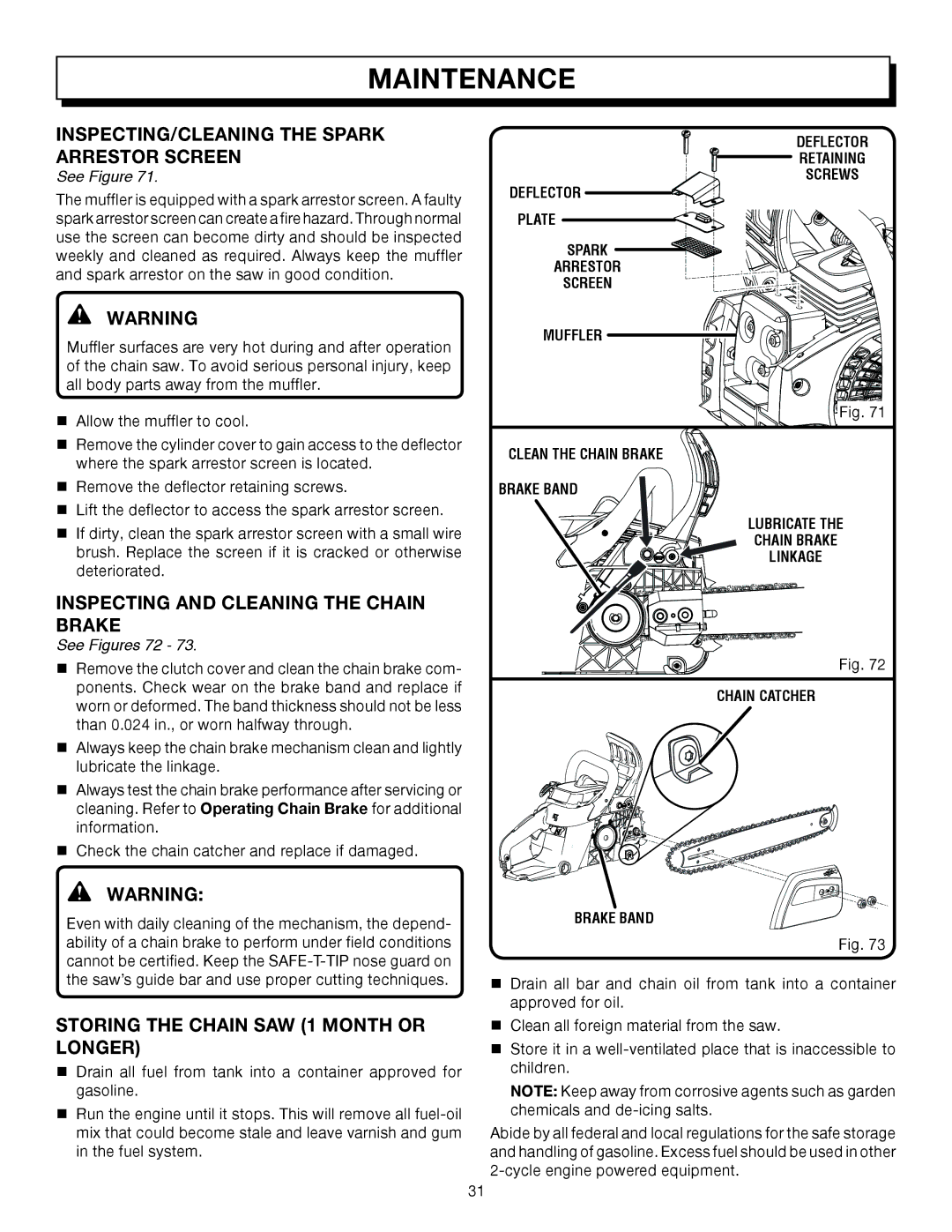
MAINTENANCE
INSPECTING/CLEANING THE SPARK ARRESTOR SCREEN
See Figure 71.
The muffler is equipped with a spark arrestor screen. A faulty spark arrestor screen can create a fire hazard. Through normal use the screen can become dirty and should be inspected weekly and cleaned as required. Always keep the muffler and spark arrestor on the saw in good condition.
WARNING
Muffler surfaces are very hot during and after operation of the chain saw. To avoid serious personal injury, keep all body parts away from the muffler.
nAllow the muffler to cool.
nRemove the cylinder cover to gain access to the deflector where the spark arrestor screen is located.
nRemove the deflector retaining screws.
nLift the deflector to access the spark arrestor screen.
nIf dirty, clean the spark arrestor screen with a small wire brush. Replace the screen if it is cracked or otherwise deteriorated.
INSPECTING AND CLEANING THE CHAIN BRAKE
See Figures 72 - 73.
nRemove the clutch cover and clean the chain brake com- ponents. Check wear on the brake band and replace if worn or deformed. The band thickness should not be less than 0.024 in., or worn halfway through.
nAlways keep the chain brake mechanism clean and lightly lubricate the linkage.
nAlways test the chain brake performance after servicing or cleaning. Refer to Operating Chain Brake for additional information.
nCheck the chain catcher and replace if damaged.
WARNING:
Even with daily cleaning of the mechanism, the depend- ability of a chain brake to perform under field conditions cannot be certified. Keep the
STORING THE CHAIN SAW (1 MONTH OR LONGER)
nDrain all fuel from tank into a container approved for gasoline.
nRun the engine until it stops. This will remove all
DEFLECTOR
RETAINING
SCREWS
DEFLECTOR PLATE
SPARK
ARRESTOR
SCREEN
MUFFLER
![]()
![]()
![]()
![]() F
F![]() ig. 71
ig. 71
CLEAN THE CHAIN BRAKE
BRAKE BAND
LUBRICATE THE
CHAIN BRAKE
LINKAGE
Fig. 72
CHAIN CATCHER
BRAKE BAND
Fig. 73
nDrain all bar and chain oil from tank into a container approved for oil.
nClean all foreign material from the saw.
nStore it in a
NOTE: Keep away from corrosive agents such as garden chemicals and
Abide by all federal and local regulations for the safe storage and handling of gasoline. Excess fuel should be used in other
31
